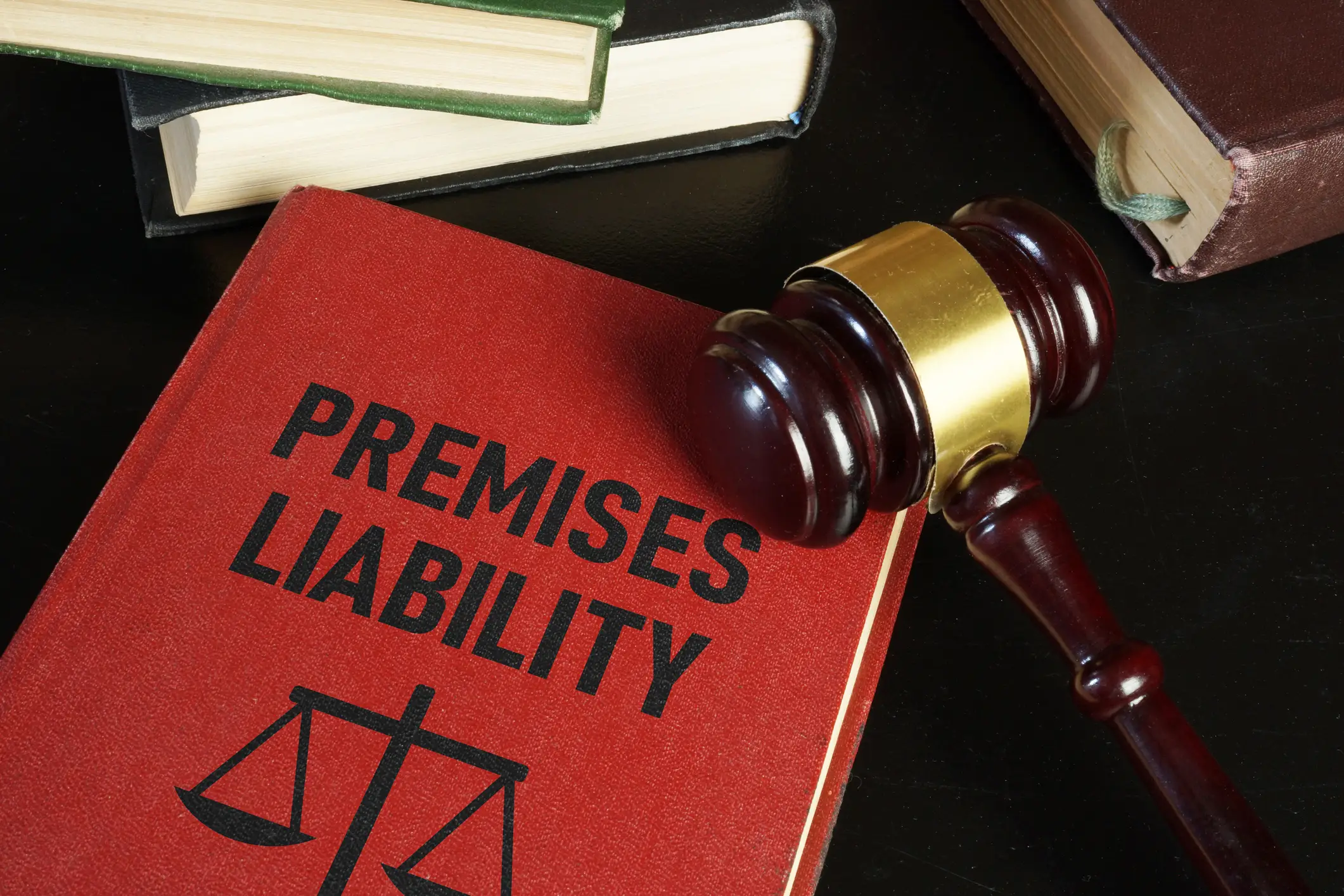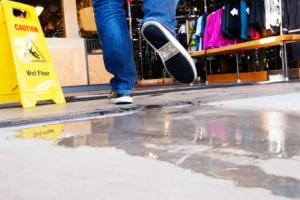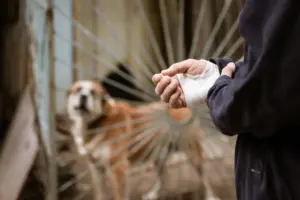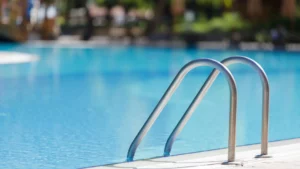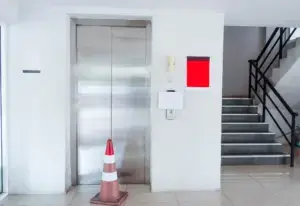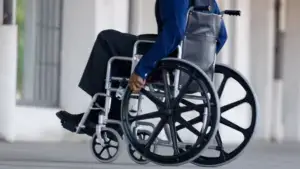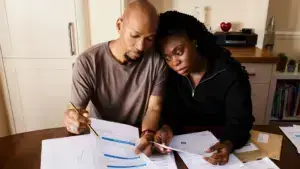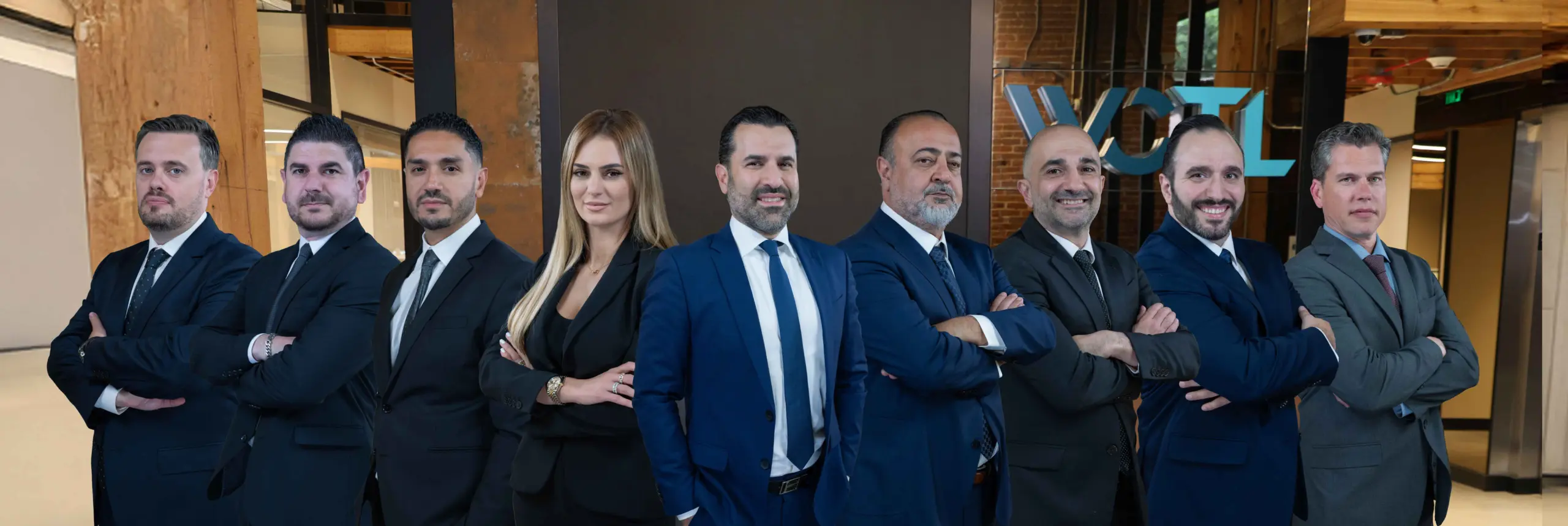With a population of over 450,000 and 5.5 million unique visitors per year, Long Beach is one of Southern California’s fastest-growing coastal cities. In recent years, Long Beach has seen a steady rise in residential development, tourism, and commercial activity. With new apartment complexes, busy shopping centers, bustling entertainment venues, and expanding public spaces, the city’s growth brings both opportunity and risk.
As more people visit or live on these evolving properties, the potential for premises-related accidents, such as slip and falls, dog bites, or injuries caused by unsafe conditions, also increases. Property owners in Long Beach have a legal responsibility to keep their premises safe and hazard-free for guests, tenants, and customers. When they fail to do so, and someone gets hurt as a result, a skilled Long Beach premises liability lawyer can help injury victims hold negligent parties accountable and recover compensation for their losses.
Injured on someone else’s property in Long Beach? At West Coast Trial Lawyers, your recovery, your future, and your peace of mind matter to us. Our 20 in-house trial lawyers and 200 staff members are what make our law firm a 5-star rated powerhouse on Yelp, Google, and Facebook.
If you’ve suffered serious injuries, whether from slip and fall accidents or other dangerous conditions on someone else’s property, call (213) 927-3700 for a FREE consultation. Or complete this easy online contact form and we’ll reach out to you today.
Understanding Premises Liability in Long Beach
Premises liability refers to the legal responsibility of property owners for injuries caused by hazardous or unsafe conditions on their property. In Long Beach and throughout Southern California, property owners must maintain safe environments for guests, tenants, and customers. When they fail to uphold this duty, negligent property owners may be held liable for any injuries that occur as a result.
Common scenarios that lead to premises liability claims include slip and fall accidents due to poor lighting, unmaintained areas, and inadequate security measures. For instance, a slip and fall on a wet floor in a grocery store or an injury from a broken stair in an apartment building. Whether the incident occurred at a commercial business or private home, injury victims may have grounds for a personal injury claim if the at fault party failed in their duty of care.
Grasping the nuances of premises liability helps injured clients determine the validity of their claims and the necessary steps to pursue them with the assistance of premises liability attorneys and an insurance company.
Who Can Be Held Liable in a Premises Liability Case?
While the property owner is often the primary party, other responsible entities may include property managers, tenants, landlords, dog owners, maintenance companies, and security contractors. Identifying every at fault party is key to strengthening your liability claim and ensuring proper legal responsibility is assigned.
Types of Premises Liability Cases
Premises liability encompasses a wide range of cases, each with its unique circumstances and challenges. Some of the most common types of premises liability cases include slip and fall accidents, dog bites, and pool accidents. Let’s explore these and a few more in depth below:
Slip and Fall Accidents on Wet or Uneven Surfaces
According to the National Safety Council, falls are the second leading cause of unintentional injury-related death, with nearly 50,000 people dying in falls at home or at work. These incidents often occur in grocery stores, shopping centers, restaurants, or apartment complexes where liquid spills or uneven flooring are not properly addressed. A slip and fall can lead to serious injuries such as broken bones, spinal damage, or head trauma, especially when no warning signs are present. Property owners have a legal responsibility to promptly address and fix these hazards.
Dog Bite Injuries
When dog owners fail to control their pets or warn others of known aggression, they can be held liable for injuries caused. Dog bite victims may suffer any one of six types of bites, including lacerations, infections, permanent scarring, and emotional trauma. This type of personal injury case often involves identifying prior complaints or evidence of the dog’s violent tendencies.
Swimming Pool Accidents Due to Poor Maintenance or Lack of Fencing
Swimming pool accidents frequently happen when there is inadequate supervision, missing safety barriers, or dangerous pool equipment lying about. Children are especially vulnerable in these settings – according to the Consumer Product Safety Commission, 81% of drownings involve children under the age of 15. As such, property owners must comply with safety laws to prevent tragedy. Failing to secure a pool area can result in drowning incidents, broken bones or life-altering head injuries.
Elevator and Escalator Injuries
Malfunctioning elevators or escalators can cause sudden drops, entrapments, or falls. These accidents often stem from poor maintenance, lack of regular inspections, or failure to meet safety standards. In such cases, not only the property owner but also the maintenance contractor may be liable.
Accidents Involving Inadequate Lighting, Negligent Security, or Falling Objects
Dimly lit stairwells, unsecured shelving, and lack of trained security personnel can create a dangerous environment for visitors. When property owners fail to anticipate foreseeable risks such as criminal acts in high-crime areas or objects falling from heights—they may be held accountable for the injuries that follow.
What to Do After an Injury on Someone Else’s Property
If you’ve been injured on someone else’s property, taking the right steps immediately afterward is crucial for your legal claim. Here’s what you should do:
- Report the Incident to the Property Owner or Manager- Notify the property owner, landlord, or store manager about the accident as soon as possible. Ensure that the incident is documented in writing, such as through an accident report.
- Take Photos of the Unsafe Condition- Use your phone to photograph the exact location where the injury occurred, including any hazardous conditions like wet floors, broken steps, or poor lighting. These images can serve as key evidence in proving negligence.
- Gather Witness Contact Information- If anyone saw the incident or the hazardous condition that caused it, ask for their names and contact details. Witness statements can help support your version of events and validate your claim.
- Seek Immediate Medical Treatment- Even if your injuries seem minor, it’s important to get medical care right away. Prompt treatment not only protects your health but also creates a medical record that can be used to demonstrate the extent of your injuries.
- Avoid Speaking to the Insurance Company Without Legal Advice- Do not give recorded statements or discuss your injuries with the insurance company until you have spoken with an attorney. Insurers may use your words against you to reduce or deny your claim.
Establishing Property Owner Negligence
To successfully pursue a premises liability claim, the injured party must prove that the property owner’s negligence directly caused the incident. This involves establishing a clear chain of legal responsibility. Here’s how that works:
The Property Owner Had a Duty to Maintain a Safe Space
Every property owner has a legal responsibility to ensure that their premises are reasonably safe for guests, tenants, and customers. This duty includes conducting regular inspections, repairing known hazards, and warning visitors of potential dangers.
That Duty was Breached
When a negligent property owner fails to take appropriate action, such as ignoring a leaking pipe, failing to fix a broken handrail, or neglecting to replace burnt-out lights, they breach their duty of care. In Los Angeles County alone, there are typically about 45,000 active violations annually, according to the Los Angeles Housing Department’s dashboard for code inspections. This breach is the foundation of the claim, as it reflects a failure to act as a reasonable person would under similar circumstances.
The Breach Directly Caused Your Injury
To win a personal injury case, you must show that the unsafe condition created by the property owner’s negligence was the direct cause of your accident and resulting injuries. This is often proven through medical records, physical therapy documentation, and statements from expert witnesses who can explain how the hazard led to serious injuries.
To support these points, legal teams gather compelling evidence such as surveillance footage, maintenance logs, inspection reports, and witness testimony. In many liability cases, claims also involve negligent security such as a lack of lighting or failure to prevent foreseeable crimes and clearly poorly maintained properties, which further illustrate the property owner’s failure to uphold their legal obligations.
Common Defenses Property Owners Use — and How To Counter Them
Property owners and their insurers often use a variety of defenses to avoid liability. Here’s how to counter them:
The Hazard was “Open and Obvious”
Some owners claim that the danger should have been easily noticed and avoided. Counter this by showing that even an “obvious” hazard can still pose an unreasonable risk, especially if proper warnings were not provided.
You Were Trespassing
Property owners may argue that you had no legal right to be on the premises. Examine the circumstances of your presence to prove you were legally allowed or that your presence was foreseeable, thus placing responsibility back on the property owner.
They Were Unaware of the Hazard
A common defense is that the owner didn’t know about the danger in time to fix it. Combat this by showing that the hazard existed long enough that they should have known, or that regular inspections were neglected.
You Were Partially to Blame
Sometimes they claim that your own carelessness contributed to your injury. Even if you’re partially at fault, California’s comparative negligence laws may still allow you to recover damages. An experienced attorney should fight to minimize any fault attributed to you.
Compensation for Premises Liability Cases
If you’ve been injured due to a property owner’s negligence, you may be entitled to maximum compensation through a personal injury claim. The goal of these liability claims is to help injury victims recover both financially and emotionally from the impact of their accident. Here’s what that compensation typically includes:
Medical Expenses
One of the most significant categories of damages in a premises liability case is medical expenses. This includes the cost of emergency room visits, hospital admissions, surgical procedures, prescription medications, follow-up care, and long-term physical therapy. Even ambulance transportation and specialized treatment can be included in your claim. These healthcare costs add up quickly, and an experienced legal team works diligently to ensure every medical bill related to your injuries is accounted for.
Lost Income
If your injury has caused you to miss work, you may be eligible to recover compensation for lost income. This includes not only your regular wages or salary, but also lost bonuses, commissions, and work-related benefits. In more severe cases, if your ability to earn a living is permanently affected, you may also be able to claim damages for lost future earning capacity. These financial losses can be devastating, especially when coupled with mounting medical bills, making this form of compensation essential.
Non-Economic Damages
Not all damages are financial. Non-economic damages compensate for the physical pain, mental distress, anxiety, and loss of enjoyment of life caused by your injury. For example, injuries caused by a fall accident may leave you with chronic discomfort, while a dog bite could result in lasting emotional trauma or fear. These intangible losses are just as real and impactful, and you deserve full recognition of their effects on your life.
Statute of Limitations for Premises Liability Claims in Long Beach
Knowing the legal deadlines and acting promptly is vital for anyone considering a premises liability claim. In Long Beach, the statute of limitations for filing a premises liability claim is two years from the date of the incident. And six months if the injury occurred on government property. This means you have a limited time to take legal action and secure your right to compensation. Failing to file within this timeframe can result in forfeiting your right to seek compensation. So the sooner you consult with a premises liability lawyer, the better your chances of gathering the necessary evidence and building a strong case.
How a Long Beach Premises Liability Lawyer Can Help
Hiring a local premises liability attorney familiar with Long Beach courts, judges, and insurers gives you an edge. Local attorneys understand how to navigate the nuances of California law and have experience dealing with similar cases in your area. Their familiarity with local codes, inspectors, and court processes can make a real difference in your outcome. Here’s how they can assist:
- Investigate the Accident Scene and Preserve Medical Records- Your attorney may visit the scene of the incident, review any available surveillance footage, and document hazardous conditions. They can also collect and preserve your medical records to establish a clear connection between the unsafe property condition and your injuries.
- Identify All Liable Parties Involved- It’s not always just the property owner who may be responsible. A skilled lawyer will identify all potentially liable parties, such as tenants, property managers, contractors, or security companies. This ensures everyone accountable is included in the claim.
- Communicate with the Insurance Company on Your Behalf- Dealing with an insurance adjuster can be overwhelming and confusing. Your lawyer will handle all communications with the insurance company to prevent you from being pressured into accepting a lowball settlement.
- Collect Evidence to Prove Property Owner’s Negligence- To build a compelling case, your attorney will gather evidence such as witness statements, photographs, safety inspection records, and maintenance logs. They may also consult with safety experts or medical professionals to strengthen your claim.
- Represent You in a Personal Injury Lawsuit- If negotiations fail to result in a fair settlement, your attorney will be prepared to file a lawsuit and represent you in court. They will guide you through each phase of the legal process and advocate aggressively on your behalf.
Schedule Your FREE Consultation with West Coast Trial Lawyers Today
West Coast Trial Lawyers is a nationally recognized personal injury law firm that has fought and won against the world’s largest corporations recovering $1.7 billion for our clients. If you’ve been injured on someone else’s property and wonder if you may have a valid premises liability claim, call us at (213) 927-3700 for a FREE case review or complete this easy online contact form 24/7. There are no upfront costs and you only pay when we win.
